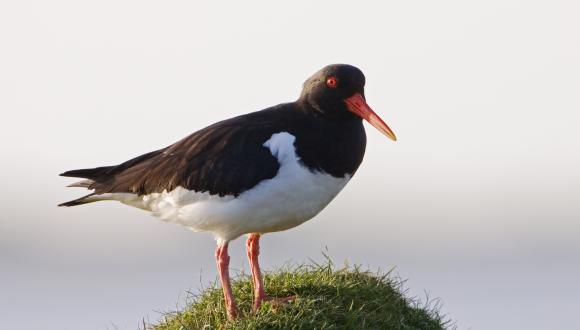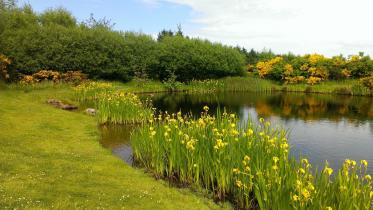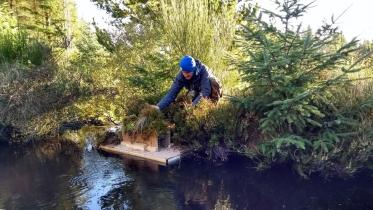Legislative Requirements for European Sites
In Scotland, European Sites are defined as candidate Special Areas of Conservation (cSACs), designated Special Areas of Conservation (SACs) and classified Special Protection Areas (SPAs).
The Conservation (Natural Habitats, &c.) Regulations 1994 as amended (the “1994 Habitats Regulations”) apply to European Sites. Where reserved matters (within the meaning of Schedule 5 of the Scotland Act 1998)1 are concerned, certain provisions of the Conservation of Habitats and Species Regulations 2017 (the “2017 Regulations”) apply instead. Both sets of regulations require an equivalent process in relation to the assessment of plans and projects with the potential to affect European sites.
The requirements are summarised in Circular 6/1995 as amended June 2000 and include, at paragraph 12,
"The Regulations require that, where an authority concludes that a development proposal unconnected with the nature conservation management of a Natura 2000 site2 is likely to have a significant effect on that site, it must undertake an appropriate assessment of the implications for the conservation interests for which the area has been designated."
Under regulation 48 of the 1994 Habitats Regulations (or regulation 63 of the 2017 Regulations in respect of reserved matters), this means that the competent authority has a duty to:
- determine whether the proposal is directly connected with or necessary to site management for conservation; and, if not,
- determine whether the proposal is likely to have a significant effect on the site either individually or in combination with other plans or projects; and, if so, then
- make an appropriate assessment of the implications (of the proposal) for the site in view of that site's conservation objectives.
(This consideration is commonly known as Habitats Regulations Appraisal (HRA) and extends where appropriate to plans or projects outwith the boundary of the site in order to determine their implications for the interests protected within the site.)
If significant effects are unknown or likely, the competent authority can only agree to the proposal under regulation 48 (or regulation 63 of the 2017 Regulations in respect of reserved matters) after having ascertained by means of the appropriate assessment that it will not adversely affect the integrity of the site and having first consulted and had regard to any representations made by SNH (NatureScot).
If it is not possible to ascertain that the proposal will not adversely affect the integrity of the site and there are no alternative solutions, the proposal can only be allowed to proceed if there are imperative reasons of overriding public interest for doing so (and having obtained any necessary compensatory measures).
Where a priority habitat3 is affected reasons of overriding public interest can relate only to human health, public safety, beneficial consequences of primary importance for the environment or other reasons subject to the opinion of the Scottish Ministers. Where no priority habitat is affected imperative reasons of overriding public interest can include those of a social or economic nature.
If a competent authority proposes to approve a plan or project on the grounds of imperative reasons of overriding public interest then regulation 49 of the Habitats Regulations4 states that the competent authority must inform Scottish Ministers (or the Secretary of State) and must not issue approval for a period of 21 days after receipt by Scottish Ministers (or the Secretary of State) unless notified otherwise5.
If proposals are allowed to proceed in accordance with regulation 494 then it should be noted that regulation 536 requires that Scottish Ministers (or the Secretary of State)4 shall secure that any necessary compensatory measures are taken to ensure that the overall coherence of the UK site network is protected.
Footnotes
1 Reserved matters include: activities consented under sections 36 or 37 of the Electricity Act 1989; activities consented under the Pipelines Act 1962; matters related to the exploration for, and exploitation of, deposits of oil and natural gas; and matters related to defence of the realm.
2 European site
3 Priority habitats (within the meaning of the Habitats Directive and the Habitats Regulations) which occur as qualifying interests in SACs in Scotland can be found in a list of priority habitats in Scotland. Priority habitats are not qualifying interests of SPAs and there are no European sites designated for any priority species in Scotland.
4 Or regulation 64, as modified by regulation 67(3)(c), of the 2017 Regulations for reserved matters
5 Scottish Ministers are the competent authority in relation to considerations under regulations 49 and 53 of the 1994 Habitats Regulations. Scottish Ministers are also the appropriate authority in relation to regulations 64 to 68 of the 2017 Regulations for activities consented under sections 36 or 37 of the Electricity Act 1989 and activities consented under the Pipelines Act 1962. For reserved matters other than Electricity and Pipelines, the appropriate authority in relation to these provisions is the Secretary of State (Westminster).
6 Or regulation 68, as modified by regulation 69(3)(c), of the 2017 Regulations for reserved matters







